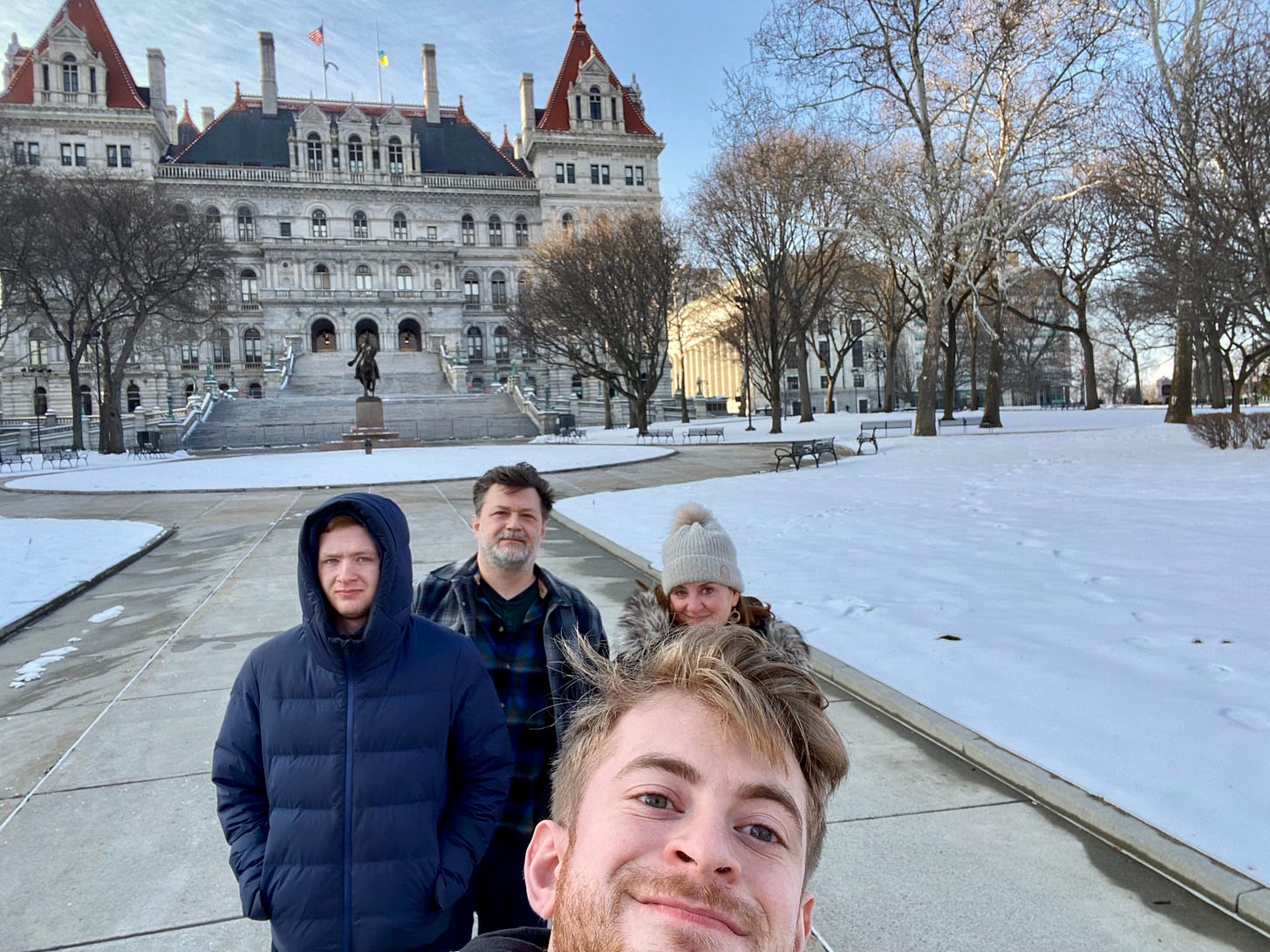Biden’s age problem (with signs of possible dementia) isn’t going away. I learned some new terms this week, like sundowning. I also learned that the average age of a US Senator is 65.
Hell, they’re all old. Biden is 81, Trump 78, McConnell 82, Pelosi 84. Sure, some of them seem to be operating on better batteries than others, but regardless, they ain’t young. Most Republicans and Democrats would like someone else on the ballot, but Biden and Trump seem to be the best that we’ve got. A felon and a jello eater — what terrible choices!
So, why has Washington politics become “Grampa Government”? Why aren’t there more perfectly nice, middle aged Gen Xers seeking political office? I think the problem starts at home.
Our national leaders are so old, because the pipeline of leaders, from town leaders to Senator, is broken at the bottom. Local government is plagued by covert power players, unchecked social media, an information vacuum caused by the death of local media, and excessive unpaid work loads. To thrive in local government and move onto higher office, one needs leather skin, the right networks, and more fortitude than the average mortal.
Abdallah Fayyad has an excellent article in Vox, which tackled the same question yesterday. He points to factors like incumbency, gerrymandering, and polarization. Those are real problems in our government, and as he says, a sign of decline in Democracy. I don’t want to discount Fayyad’s excellent points, but add another problem onto the fire.
Let’s start with local media. The small town newspaper died once people didn’t need to advertise jobs or used cars on their back pages. Facebook MarketPlace, Craig’s List killed local papers across the country, According to Spectrum News, NY1 (a great local news program, btw), the newspaper death toll is only speeding up.
An average of 2.5 newspapers closed each week in 2023 compared to two a week the previous year, a reflection of an ever-worsening advertising climate, according to a Northwestern University study issued Thursday. Most are weekly publications, in areas with few or no other sources for news.
"My concern is that the acceleration that we're seeing is only going to worsen," said Tim Franklin, who heads the local news initiative at Northwestern's Medill journalism school.
At its current pace, the country will hit 3,000 newspapers closed in two decades sometime next year, with just under 6,000 remaining, the report said. At the same time, 43,000 newspaper journalists lost jobs, most of them at daily publications, with the advertising market collapsing.
Most town assembly meetings are never reported in a news source with traditional journalistic ethics and norms. Information might get to the public through various quasi-journalism sources, which are undisclosed arms of various political campaigns, or from social media. These aren’t real news sources.
What happened when local media stopped reporting on the latest resolutions and policies in local governments? The apathetic voter got even more apathetic. People stopped voting, or vote as they were told, based on the whims of the covert power players in town. To get noticed by the voters and the power players, elected officials now must buy six figures worth of advertisements, or make deals on the tennis courts of the country clubs.
I am, of course, not talking about my own lovely town, but speaking about general issues across my state. This is Jersey-style politics, which is one of the most corrupt in the country. While New Jersey is particularly bad, this same dynamic is happening across the country.
Making deals and buying Facebook ads is a lot of work, but the real work happens after the election. It’s a full time job running our local towns. It’s thankless, unpaid work. Every day, they dread reading the mockery and distortions on social media. Even when the right people endure the horrible election process, they become swamped with work and leave after one term.
November 2024 is going to be even weirder for local politics. While most voters have low knowledge about local government, big numbers are going to turn out this November. They’ll walk into the booth, vote for president, and then randomly click some buttons in the local columns. They’re going to vote for the Irish names or the person who has the same name as their kid. Facebook ads and tennis court connections won’t matter at all. Local voting outcomes will be random.
Ideally, we should be training our leaders at the bottom. They should gain essential governing skills by holding local office, learn to make compromises and formulate good policies. From there, they should move onto state government where they gain more skills. And then they should run for national office. But when things are broken at the bottom, when the escalator no longer goes up, then we aren’t getting fresh faces.
We can’t change Washington without making changes in our communities. Elections have be fairer, and voters more informed, so we can get good people into office. Civic groups need to provide sources of unbiased information for voters. And then we must nurture the next generation of political leaders, help them succeed in local office where they can gain governing skills, and then try their hand at higher office. We have to fix the pipeline.
Photo: A couple of years ago, we started a project of taking pictures outside of state capitals. We did four: VT, NY, MA, and CT, before getting too busy to go much further. But we’re going to back to the project this summer. At the very least, we have to go to Trenton.



